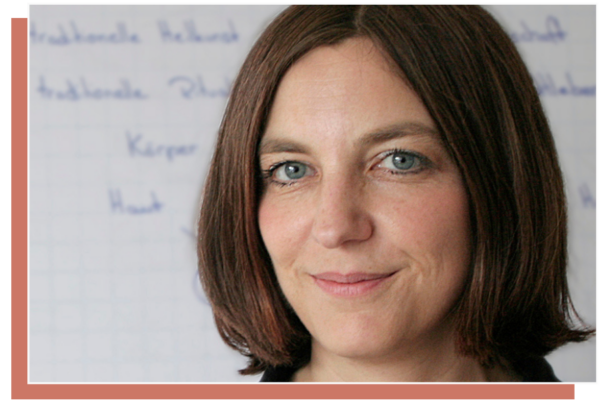At CLR, we have the consumer in mind right from the start of the development of our active ingredients. We analyze which skin problems consumers have and develop solutions. Our aim is not to serve short-lived trends, but to improve people’s well-being and quality of life. We want to help people all over the world to feel comfortable in their skin and give them the basis for finding themselves beautiful – however they define beauty for themselves. With this approach in mind, we created our concept “Don’t be an ideal, just be you!”
To understand how the new concept came together and what role the idea of «body positivity» or «body neutrality» played in the process, we talked to Nathalia Gruber, CLR’s Director Marketing & Corporate Communications.
Nathalia, CLR is currently focusing on the topic of «body positivity». What prompted you to do so?
The occasion was actually a very personal one for me. The daughter of friends of mine was hospitalized and diagnosed with anorexia a few months ago. So, in our marketing team we started talking about beauty, beauty standards and the impact that narrow beauty ideals have on our mental health. We discussed the influence of the media, social media in particular, the role of the cosmetics industry, which we are a part of, and how the pandemic changed our view on mental health issues. At some point, we also had to take a critical look at our own marketing activities and ask ourselves if we are not indeed a part of the problem.
The topic is very complex…
It is and we quickly realized that. We decided to open up the discourse and asked colleagues from our sales team for their perspective on body positivity in beauty marketing and found that views on this topic are more subjective and more emotional than we expected. All of us agree that this is a very important issue and that showing more diversity in advertising is our shared value and ambition, but when asked about one’s own relationship towards body positivity, defining a personal point of view is not easy.
Common ideals of beauty are very present and it is difficult to free oneself completely from them. And in the end, as mentioned, we are also part of the cosmetics industry, which earns money with ideals of appearance. That’s how self-critical we have to see ourselves. But that is precisely why we wanted to take up the topic, because it is so complex and deserves attention. There is still a lot to move.
How do you see CLR’s role in this topic?
As I said, we are of course part of an industry that has helped shape very narrow ideals of beauty for decades. Even with our models and the stock photos we use, we have to raise our own awareness, act responsibly and try to address the broadest possible consensus. As a medium-sized active ingredient manufacturer, however, we are in a different position than, for example, Dove, who have been positioning themselves as pioneers of body positivity for many years.
Nevertheless, we can make our contribution. Our approach at CLR has always been first and foremost to keep the skin healthy and thus to create a basis to feel comfortable in your skin. That’s the first step we have to take to be able to feel beautiful at all – however we define it for ourselves. Our aim is not to serve short-lived trends, but to sustainably improve people’s well-being and quality of life.
Which age group is concerned most from your point of view?
Basically everyone. When you think of body positivity, the first thing that often comes to our minds is teenagers and young adults. But self-image also plays a major role in older age. The generation of today’s 50-70-year-olds differs enormously from the previous generations. People feel much younger and are longer active, often even working longer. This is also reflected in their clothing style and appearance. This generation feels good about their age and doesn’t necessarily yearn to be younger, but they still want to look as good as possible at any age. And that doesn’t necessarily mean wrinkle-free these days, but an even, rosy skin tone, radiant eyes, etc. are important to look as fresh and youthful as you feel. In the end, it’s all about feeling comfortable in your skin.
But young people often find it particularly difficult to feel comfortable in their skin, right?
I myself have children who are just entering puberty and are at an age where they are increasingly concerned with their bodies and their appearance. They are not only influenced by their family, friends and classmates, but also strongly by social media. Of course, as a mother, this worries me. On the one hand, supposed ideals are omnipresent in online media, on the other hand, the confrontation with one’s own image is just as omnipresent – both to a much greater extent than it was in my youth. At the same time, I see that possible role models from celebrities to influencers to models and testimonials in advertising today are also much more diverse. Growing up and figuring out who you are has always been hard, for every generation. I wish for my children to not chase after supposed ideals, but that they find their own way to gain a good body feeling and define beauty on their own terms. For me, this is the real crux of the matter – everyone should have the freedom to define beauty for themselves.
Thank you very much for the interview, Nathalia!
